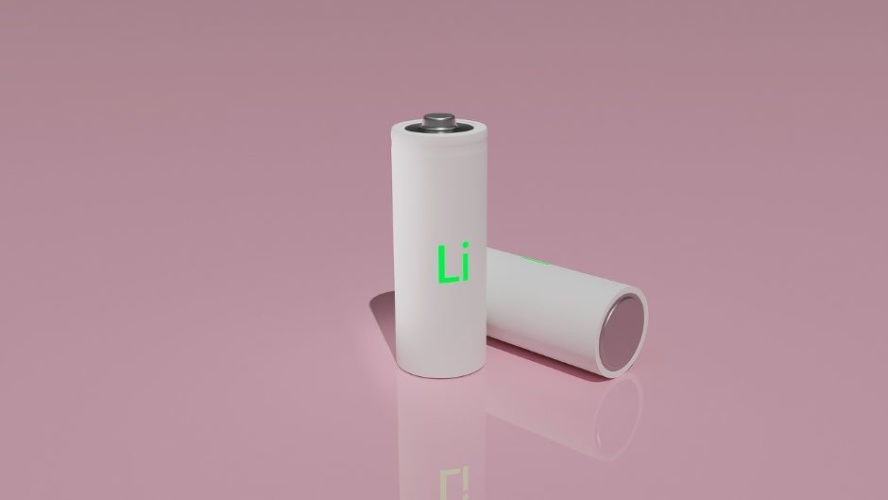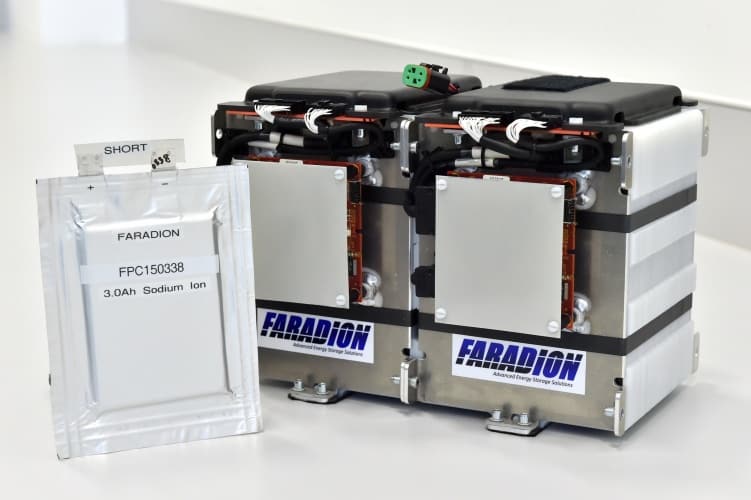 Sodium-ion battery manufacturing enables a country to take ownership of its energy security the energy supply chain, at low cost and low risk, says James Quinn CEO of Faradion.
Sodium-ion battery manufacturing enables a country to take ownership of its energy security the energy supply chain, at low cost and low risk, says James Quinn CEO of Faradion.
After the invention of the wheel, options for human transport barely evolved for 4,000 years. The arrival of the internal combustion engine (ICE) changed all that. Despite regular micro-inventions, the fundamentals of ICE and its reliance on lead acid batteries remained unchanged from the 1890s until today. A competitor started to emerge in the 1970s, and a decade of innovation saw the first commercially viable lithium-ion battery in 1985.

The advantage of lithium-ion batteries is that they are not based upon chemical reactions that break down the electrodes, but upon lithium ions flowing back and forth between the anode and cathode. Lithium-ion batteries revolutionised our lives since they first entered the market in 1991.
While lead acid batteries are low cost, they are also low performance, with a reliance on lead. The main cost of an electric vehicle (EV) is the cost of the battery, and lithium-ion battery prices have fallen 24 per cent since 2016, according to Bloomberg New Energy Finance. At the same time, energy density is increasing at a rate of 5-8 per cent a year.
Powering up a British battery boom
But as of today, lithium-ion batteries are still expensive and have major sustainability issues. The first issue will be addressed over the coming years. The second will exacerbate quickly. In short, there are simply not enough raw materials for today’s lithium-ion batteries to be a safe, viable solution in the medium-term.
These batteries are exclusively reliant on finite metals that are difficult to extract from the Earth’s crust. This is dangerous for a country’s energy independence, as we see fragile just-in-time global value chains exposed during the pandemic. The time required to convert exploration success into a new mine is currently 30 years. Even under highly optimistic production assumptions, there will be insufficient supply in the medium term.
Lithium-ion batteries are not the answer for a cleaner, more sustainable environment for future generations
China controls most of the cell battery material supply chain, which represent more than 80 per cent of the battery cost. The country controls more than 75 per cent of world lithium-ion manufacturing capacity, and its lithium reserves are 30 times those of the US. 72 per cent of the world’s reserves of cobalt are in Democratic Republic of Congo, largely owned by China.
As the world seeks to disentangle itself from an over-dependence on China (particularly noteworthy in recent policy shifts from the US and India), lithium-ion batteries are not the answer for a cleaner, more sustainable environment for future generations.
Dr Chris Wright, who was one of the pioneers of commercialising lithium-ion technology, saw potential in sodium-ion in 2011, and co-founded Faradion with Jerry Barker to develop sodium-ion technology and bring it to market. After announcing our first major orders from ICM Australia, then for heavy-goods vehicles in India with Infraprime Logistics Technologies in June, we’ve had nearly 120 requests for partnership in the period of just four weeks.

The reason for the excitement is four-fold. One is the proven ability for sodium-ion to match lead-acid cost of ownership, with performance at least as good as lithium-ion. The second is a drive to invest in a country’s own supply chain, moving away from Chinese dependency. Third, sodium is the sixth most abundant element in the earth’s crust so there is no scarcity. Fourth, sodium-ion batteries can be discharged to 0 V (zero energy), so are safer than lithium-ion. There is a low cost of precursor materials, and it benefits from cobalt-free cell chemistry, with no graphite, no copper and no lithium too.
Simply put, sodium-ion battery manufacturing enables a country to take ownership of its energy security the energy supply chain, at low cost and low risk.
Economies will soon be faced with a choice of technologies to power their sustainability needs. Which technology “wins” this race will depend not just on price and efficacy, but also on supply chain security considerations.
James Quinn is CEO of Faradion





RIA launches strategic vision for 2050 rail network
I think the main benefit of HS2 was to free up capacity on the existing lines for freight or additional passenger journeys, but the time savings were...